Unlock the Magic in Your Story Now
Get the Free 20 questions to Ask Before Launching Your Idea workbook when you sign up for occasional updates.
Get the Free 20 questions to Ask Before Launching Your Idea workbook when you sign up for occasional updates.
On Experience
filed in Meaningful Work, Strategy, Success

Every time we approach a new problem we believe we have to come at it with fresh eyes. Sometimes that is true. But we mustn’t ignore our lived experience.
Whatever challenge or goal is in front or ahead of us, it’s worth remembering the resources we called on to get where we needed or wanted to go in the past.
We can still call on them today.
Our past resourcefulness gives us insights we can leverage now and in the future.
Image by Jukan Tateisi
Share this article
The Right Thing
filed in Meaningful Work, Worldview
 Long before digital platforms, social media and online reviews we’ve had the incentive to do the right thing.
Long before digital platforms, social media and online reviews we’ve had the incentive to do the right thing.
The need for the protection of our tribe and a sense of belonging to our community meant we adhered to rules and norms for the benefit of the collective good. We needed to do right by others, not just ourselves if we wanted to belong. In the past, it was difficult to say one thing and do another.
In a digital world, this is not the case. We can pay lip service in public on occasion without doing the hard, often unseen work of caring every day.
There’s a difference between being seen to do the right thing and doing the right thing. Everyday actions speak louder than occasional words.
Image by Dan Meyers
Share this article
The Human Touch
filed in Meaningful Work, Success
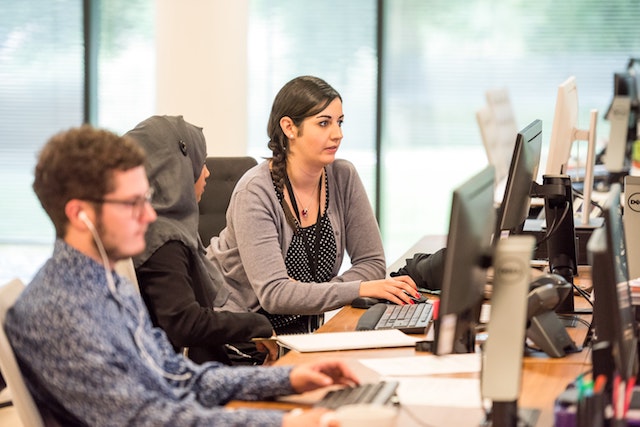 The woman on the other end of the line at the call centre hesitates. The change in her tone of tells me she doesn’t know the answer to my question. She hesitates. I hear the doubt in her voice. She’s having to go off script, and she’s terrified. She’s trained to answer only certain queries as quickly and efficiently as possible.
The woman on the other end of the line at the call centre hesitates. The change in her tone of tells me she doesn’t know the answer to my question. She hesitates. I hear the doubt in her voice. She’s having to go off script, and she’s terrified. She’s trained to answer only certain queries as quickly and efficiently as possible.
Her job is to funnel people to the right email address and move on to processing the next incoming call. She doesn’t know what to do next. And she hasn’t been encouraged to say: ‘I don’t know.’ or ‘I’m not sure, but I will find out for you.’
Our greatest fear when we are anxious or dissatisfied is that we will not be seen, or worse, that we will be ignored. What we want in those moments isn’t the right answer, right away. We want empathy—to be treated with humanity.
When our systems are designed to deliver and do the opposite communication breaks down. We fail everyone in situations where we prioritise efficiency over humanity. It isn’t just the people we serve who lose when we stop being human. When we are empowered to do work we’re proud of, everyone wins.
Image by Arlington Research
Share this article
A Compass For The Heart
filed in Meaningful Work, Strategy, Success
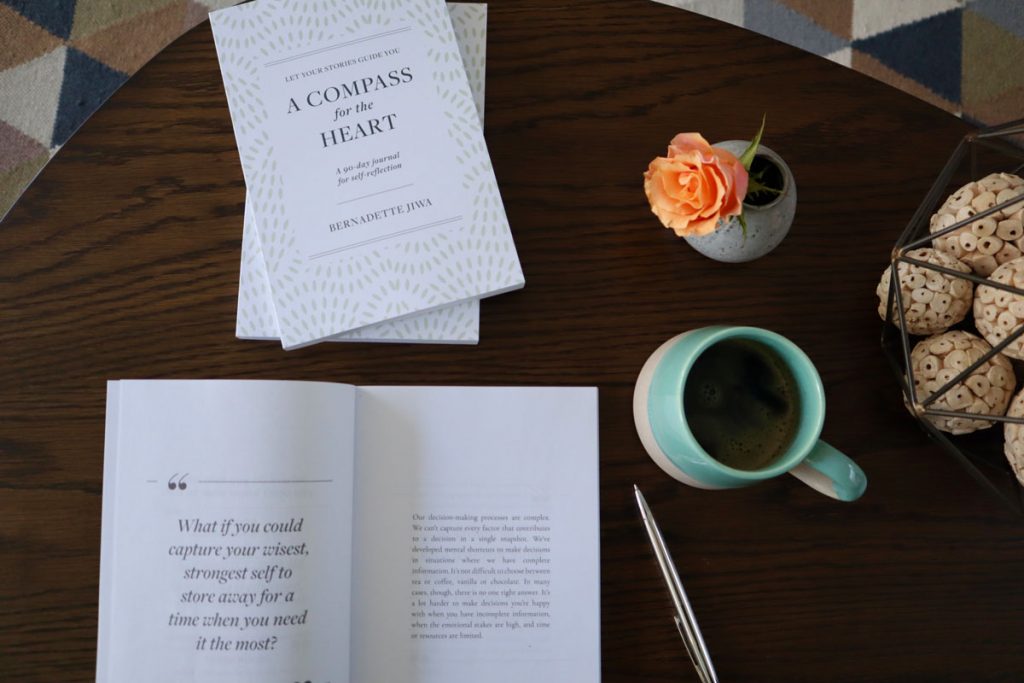
Where do you turn when you don’t know what to do?
Perhaps you do a Google search for facts. Maybe you read a book and get information. You might consult a professional for their expertise. And friends will gladly offer you opinions based on their experiences.
You can only gain insights and intuition based on your experience by taking time to reflect. Every day we have the opportunity to use yesterday’s stories as wise counsel for tomorrow. But we don’t have a way of remembering, recording or reflecting on what those everyday stories can teach us.
Inspired by my work with thousands of Story Skills Workshop students. I created
A Compass For The Heart. It’s a 90-day guided journal for self-reflection that helps you to record the everyday stories and life lessons to guide your decisions in good times and bad.
Inside, you’ll find a simple framework and templates for daily reflection that help you to capture your wisest, strongest self to store away for a time when you need it the most.
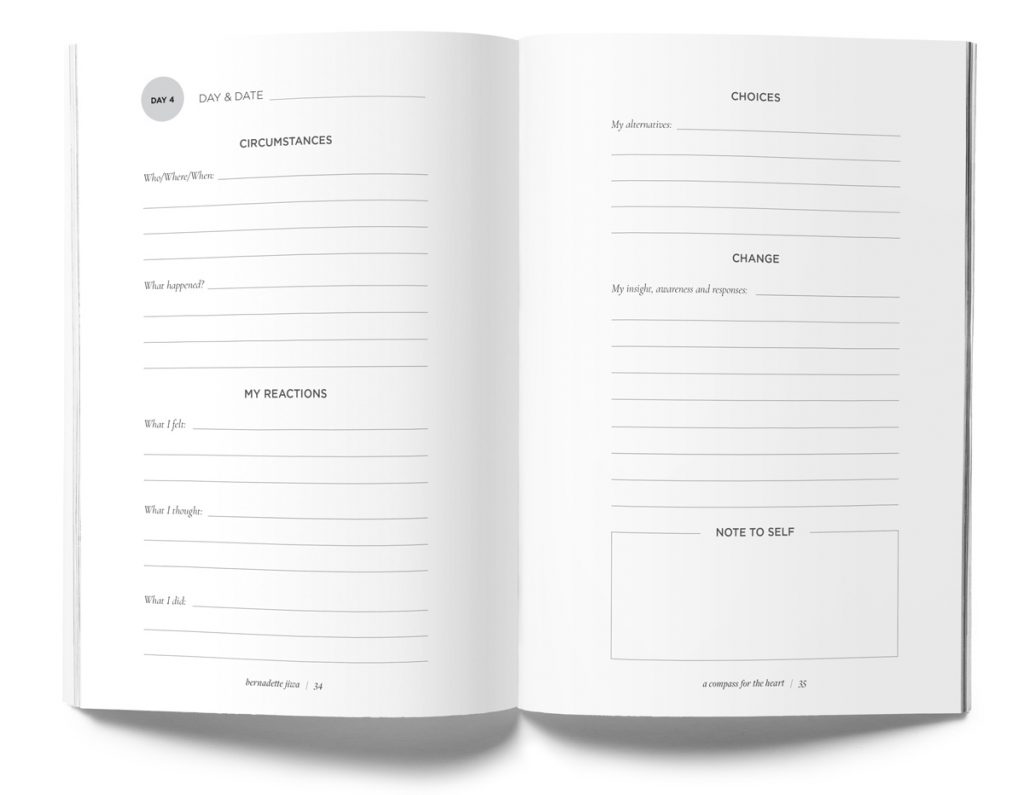
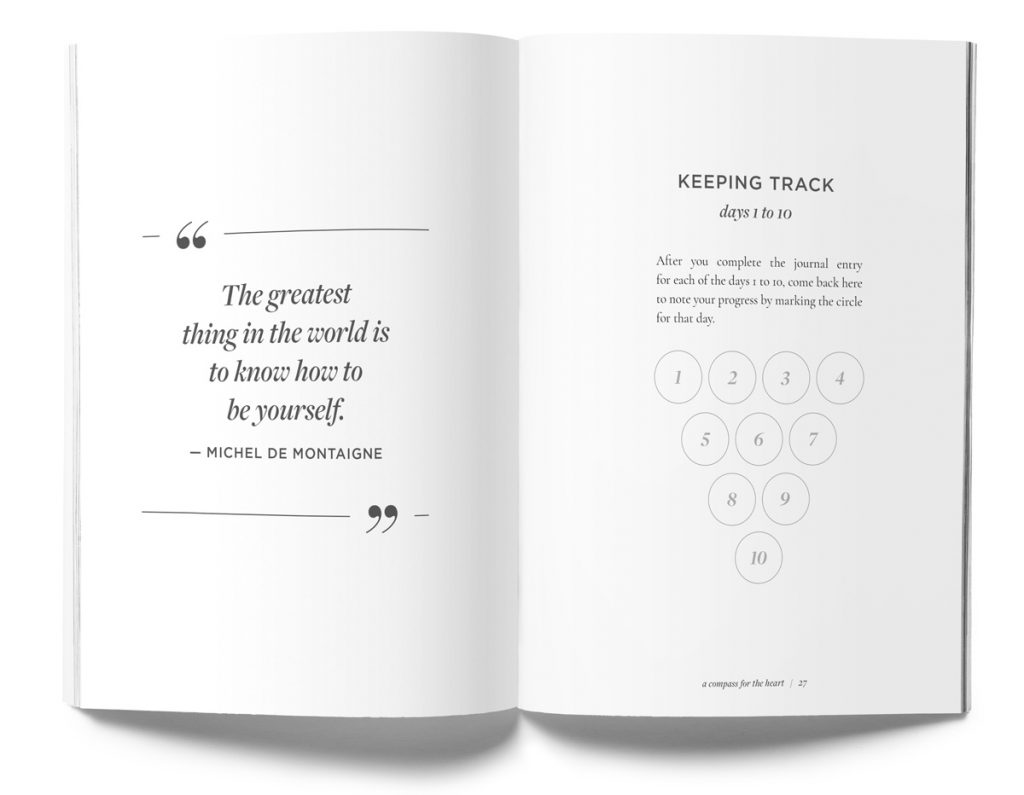
Although I’m a writer and I gather stories every day, I’ve never been one for journaling. There’s something about that blank page that’s intimidating. It feels like a sacred space for only the most elevated thoughts.
If like me, you’ve tried and failed to create a reflection ritual or journaling practice in the past, I hope you’ll give A Compass For The Heart a try. You can buy it now from Amazon.com, Amazon.co.uk, Amazon.ca or by searching your regional Amazon store. *Note: The journal will be available in Amazon’s Australian store in 6 weeks.
Thank you as always for giving me a reason to reflect, write and create. It’s a joy and a privilege to share ideas with you.
Share this article
The Value Conundrum
filed in Marketing, Strategy, Success
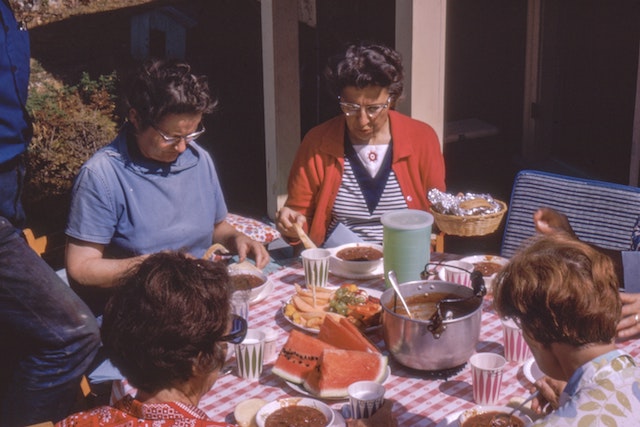
When I was growing up, my mother tried selling various products from home to earn extra money to support our family. I remember cookware and cosmetics being demonstrated to small groups of her friends over cups of tea and homemade sponge cake in the living room.
From day-to-day, Mum used the same old pans that had been handed down to her by my granny, and she hardly ever wore makeup. So her sales pitch usually came unstuck when she tried to demonstrate the products. She couldn’t show her friends how the products would make their lives easier or better.
Every purchase is a dance between risk and reassurance. The people we want to help must have faith in us before they can believe in the value we create or the stories we tell.
Image by Annie Spratt
Share this article
Forward Thinking
filed in Meaningful Work, Strategy, Success

Every business owner or leader, entrepreneur or creative, walks the fine line between creating value in the present and thinking about what their contribution might be in the future. We need to do the work that’s in front of us today and plan for a tomorrow we cannot yet see. Often, we end up doing the work and walking this path alone.
Where do you turn when you need to reflect on your next right move?
Who do you use as your sounding board?
Do you know people who are on a similar journey who can help you?
When I asked those questions of my readers three years ago, the answer to all of them drew a blank. Many people said they had a professional presence on LinkedIn, but that didn’t serve their need for support when they needed it most.
That’s why I launched the Right Company—a paid, group-mentorship experience. It has become a tight-knit community of like-hearted, generous people from all over the world, doing work that matters—helping each other to get better together.
Today we’re opening up applications to the Right Company to a limited number of new members. If you’re looking for support to create momentum in your business or with your projects I hope you’ll apply today.
What kind of of future could you build with the help of the right company?
Image by Chris Montgomery
Share this article
Nurturing Trust
filed in Strategy

Almost three months ago, when restrictions due to the coronavirus began rolling out across Australia, panic-buying ensued. The CEO of one of our supermarket chains began writing a weekly email newsletter to customers in response.
In it, he addressed customers’ genuine concerns about the availability of everything from flour to toilet paper. He gave people insights into stock levels and sales comparisons from the previous year. And he reassured customers by explaining the health and safety measures the company was implementing for staff and customers.
The email was informative, reassuring and welcome. It built trust and connection with the previously faceless leadership of the organisation.
As panic-buying eased and consumer buying patterns began returning to normal, the CEO announced that he would stop sending his weekly email. What a missed opportunity to nurture the trust he’d earned with his customers in challenging times.
Trust is our scarcest resource. We should treat it as such and do all we can to earn and nurture it.
*Yes, I did contact the CEO, encouraging him to keep writing. And he decided to continue. Maybe mine wasn’t the only email he got that day.
Image by Jarred Ray
Share this article
The Power Of The Unexpected
filed in Meaningful Work, Strategy

Last Monday I got a handwritten letter in the mail. Imagine my surprise when I opened it to find a note from a contractor who had unsuccessfully quoted for a small renovation project on our home.
In his letter, he said he was sorry things hadn’t worked out this time around but that he hoped to be of service to us in the future. It was an unexpected gesture that we’re unlikely to forget.
Often it takes less than we think to stand out from the crowd. Small, thoughtful, well-timed acts can make a difference.
What’s the most unexpected thing you’ll do today?
Image by Hanny Naibaho
Share this article
Up To Us
 Sometimes we choose to focus on those things that no amount of energy and enthusiasm can change. By doing so, we miss the opportunity to have more impact, both on our own lives and in the lives of others.
Sometimes we choose to focus on those things that no amount of energy and enthusiasm can change. By doing so, we miss the opportunity to have more impact, both on our own lives and in the lives of others.
All progress comes from discerning where our effort is best applied, then taking the small steps each day that will make the most difference.
Where should you apply your effort today?
Image by Bruno Mascimento
Share this article
The Future We Want To See
filed in Worldview

Sometimes we fail to act because we’re afraid of saying or doing the wrong thing.
So we say and do nothing and wait for the discomfort of the moment to pass.
It’s easier to turn a blind eye than it is to simply say: ‘This is not okay.’
But the future we’re building together depends on every one of us being brave enough to say those words.
The courage to say and do what’s right is the foundation upon which we will build the future we want to see.
Image by Guy Bassabose